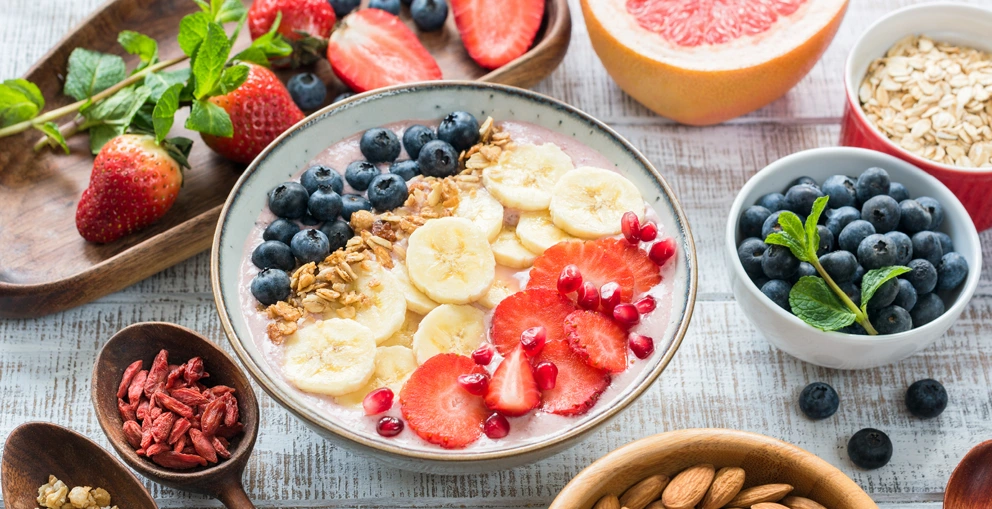
Parents and caregivers must ensure that infants receive the proper nutritious snacks during their early stages of development. Babies experience rapid growth in their first few years, and the foods they consume significantly shape their health. A critical aspect of their diet is snacks. Offering nutritious options helps fulfil their caloric needs and introduces them to new flavours and textures. This guide will explore the best options for little ones.
Why Baby Snacks Matter
Baby snacks are more than just a way to satisfy hunger between meals. These early food experiences help shape an infant’s taste preferences and eating habits. The right ones can provide a valuable source of essential nutrients like vitamins, minerals, healthy fats, and proteins that support overall growth and development. Moreover, introducing various flavours early on can increase an infant’s acceptance of different foods, which may help prevent picky eating later on.
What to Look for in Nutritious Snacks
When choosing snacks, it is important to consider their nutritional value, texture, and safety. Babies have different dietary needs compared to adults, and their options should reflect these unique requirements. For example, they should be rich in iron, calcium, fibre, and healthy fats, as these nutrients are crucial for brain development, bone health, and digestion.
Making the Right Choice Based on Age
As babies grow, their dietary needs evolve, so it’s essential to choose products that align with their current developmental stage. For example, babies aged six to eight months are typically just beginning to explore solid foods. The nibbles they eat must be soft and easy to digest, such as mashed fruits, vegetables, or simple rice-based cereals.
Organic and Natural Ingredients
When selecting snacks, it’s crucial to prioritise options made from organic and natural ingredients. Organic options are free from synthetic chemicals, pesticides, and genetically modified organisms (GMOs), making them a safer choice for delicate systems. Choosing products made with all-natural ingredients also reduces the risk of exposing babies to unnecessary additives that could potentially affect their long-term health.
No Artificial Additives or Preservatives
Babies’ bodies are particularly sensitive to artificial additives and preservatives found in many processed foods. When selecting such food, look for products that are free from artificial colours, flavours, or preservatives. These substances may not only cause adverse reactions but can also interfere with a baby’s developing taste preferences. Focusing on natural ingredients ensures that babies receive food that is as pure and clean as possible.
Allergen-Free Options
When introducing solid foods to babies, allergen exposure is a significant consideration. Common allergens like gluten, dairy, nuts, and soy can be problematic for some babies, especially those with a family history of allergies. It’s essential to look for labels that are allergen-free or are specifically formulated to cater to babies with food sensitivities. Many companies offer hypoallergenic options that are gentle on a baby’s digestive system, reducing the likelihood of allergic reactions.
Nutrition Helps Growth and Development
These snacks should serve as an important source of essential nutrients. As babies grow, they need foods rich in iron, calcium, vitamins, and healthy fats to support their development. Iron is vital for cognitive development, while calcium supports bone health. Healthy fats from sources like avocado or nut butter contribute to brain growth. Selecting those that provide these nutrients ensures that babies receive the nourishment they need, even between meals.
Convenience and Portability
For busy parents, convenience is key. Snacks should be easy to pack, store, and serve. Opting for portable options, such as individually packaged servings or resealable containers, allows parents to keep them on hand for busy days out. Simple, mess-free options ensure that babies can enjoy it without creating a fuss, making feeding moments easier for everyone.
Sustainably Sourced and Eco-Friendly Packaging
These foods contain sustainably sourced ingredients that are gentle on the environment. Additionally, eco-friendly packaging, such as recyclable or compostable materials, reduces waste and supports a healthier planet. Many brands are now incorporating these practices, making it easier for parents to make responsible choices for their babies and the environment.
Choose Reliable and Organic Options
Parents seeking nutritious and safe options for their little ones can rely on brands that offer age-appropriate, high-quality food for babies. These products cater to various stages of development, ensuring they meet babies’ unique nutritional needs. Choosing trusted sources helps parents make informed decisions about introducing new foods.
Convenient products with on-the-go options, like yoghurt pouches and creamy puddings, make it easy for parents to offer nourishing choices wherever they are. With the right resources, parents can confidently support their baby’s nutritional journey.
Nutrition is an essential part of a balanced diet during the early years of life, so the snacks babies have must contribute to their well-being. Snacks also play a key role in introducing babies to a wide variety of flavours and textures, which helps foster healthy eating habits. It’s best to introduce baby snacks gradually. As babies continue to grow, focusing on healthy snack choices will set them on the path toward a lifetime of good eating habits.
Read more – Manga4life



